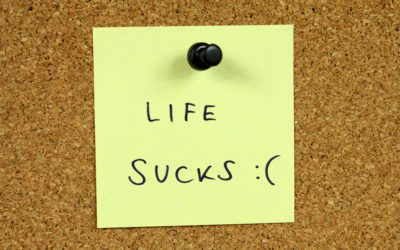If you’re not in the coaching world, this may seem a potentially interesting irrelevance, but if you’re an entrepreneur, athlete, or artist trying to get more out of yourself, a leader trying to get more out of your team, or just a human being trying to get more out of your life, these distinctions are absolutely critical.
How do we tap into more of our true potential for productivity, creativity, and innovation? How do we transform our relationship with fear so it neither holds us back nor propels us forward in directions we know in our hearts we don’t really want to go? How do we ride the inevitable waves of failure and success we will meet in our life and, in the words of Rudyard Kipling, “treat those two impostors just the same”?
Over the 26 years I’ve worked in this field, I’ve had the opportunity to be coached and mentored by some people I consider to be true geniuses at the art. I’ve spent hundreds of thousands of dollars for that privilege, but the best of the best have impacted my life in ways that no amount of money could truly compensate for. I’ve also coached and mentored a new generation of coaches – some whose names are already well known in the coaching arena, and others who are quietly impacting the world, being passed from client to client and company to company on reputation alone.
Here’s what I’ve come to see so far…
The two things that the truly great coaches I’ve known and worked with over the years have going for them are an unconditional love and care for the people they work with, and a willingness to be a disruptive force in their lives.
1. What’s love got to do with success?
I have been loved, nurtured, and cared for throughout my life. My parents never let me doubt their love for me; my friends were unconditional in their friendship; my teachers unwavering in their support when I was going through the worst of my mental issues at university. I was held and rocked by a nurse whose name I never did find out in the midst of a 24 hour crying jag until my own strength and well-being returned; when my father died an angel who worked for airline I wish I could remember somehow managed to get me from London to Boston without a penny to my name or a functional brain cell in my head.
Yet until I worked with a man named Bill Cumming, it never occurred to me that I might in any way be worthy of any of that love. For eighteen months, Bill would repeatedly tell me that he loved me. I knew he didn’t mean it in any sort of a romantic sense, but early on in our work together I thought it was a tactic; eventually, I chalked it up to his being charmingly eccentric. My certainty that I was a worthless piece of shit, regardless of what anyone said, smashed weekly into his certainty that my value and worth in the world were a given, regardless of anything I did.
I remember to this day hanging up the phone after our umpteenth argument about why I was never going to amount to anything and it suddenly occurring to me that maybe he was right and I was wrong. That was the first time I was able to really feel love from anyone other than my wife or my pets, and it changed my life. I began to “own” my power to create in a new way, and stopped stopping myself from sharing the best of what I had to offer with others. My career began to take off, and I was amazed at the seemingly miraculous things that began happening in my life.
Love became the heart of my work to an almost embarrassing extent, because I thought the magic was in saying the words “I love you”. (One of my early apprentices, Ali Campbell, was about to head back from one of our sessions to his home in Glasgow when he asked me in all seriousness if transformative coaches often got punched by their clients early on in their work together.)
Eventually, it dawned on me that the magic had nothing to do with the language and everything to do with the genuine good feeling, kindness, and respect between coach and client. After being coached by Steve Chandler, who I suspect will be mortified to be included in this litany lest I imply he ever told me that he loved me, I went on to work with his coach, Steve Hardison, who charged what seemed to me at the time the ungodly sum of $150,000 a year.
While I found my sessions with Hardison incredibly uncomfortable (more on that in a minute), I got within five minutes that this guy would take a bullet for me. And while I might not be the best person to hang out in a foxhole with – I feel my arguments for why it makes perfect sense that those people over there are shooting us, given the thinking they have that looks real to them might get really annoying in that context – I know from my own clients that the reason they care about how much I know is because they never question how much I care.
2. Poking the bear
There’s a joke that has been doing the rounds for years about a radio exchange between an American naval vessel and a Canadian crew:
Americans: Please divert your course 15 degrees to the North to avoid a Collision.
Canadians: Recommend you divert YOUR course 15 degrees to the South to avoid a collision.
Americans: This is the Captain of a US Navy ship. I say again, divert YOUR course.
Canadians: No. I say again, you divert YOUR course.
Americans: This is the aircraft carrier USS Lincoln, the second largest ship in the United States’ Atlantic fleet. We are accompanied by three destroyers, three cruisers and numerous support vessels. I demand that YOU change your course 15 degrees north, that’s one five degrees north, or countermeasures will be undertaken to ensure the safety of this ship.
Canadians: This is a lighthouse. Your call.
According to Wikipedia, “Creative Disruption” is a term used to describe the value of “instituting challenge (disruption) within a business to break old corporate habits; this disruption is instituted by the institution itself (or its management) and requires the business to adapt and improve its business model so that it can better succeed… Creative Disruption helps a business gain a competitive advantage by seeking tipping points for improvement before competitors replicate and/or improve upon the business model.”
When individuals or teams are stuck in their habitual thinking, they can often come across like the captain of the ship, blindly arguing for their unwittingly self-created limitations and trying to blast through them with brute force and bluster. There’s little room in their lives for insight or innovation, as all their energy is spent in maintaining their defenses against both real and imaginary challenges to their certainty.
As a coach, part of my job is to wake them up, both to the illusory nature of the very problems they have hired me to help them solve and to the reality of the incredible creative resources and power they have inside them.
I call this “poking the bear”, because when someone’s ego gets challenged, it often growls back at you like an animal being prodded out of premature hibernation. All great coaches are willing to poke the bear – to take on their clients most dearly held illusions about how life works and what they can or can’t do about it. They do this knowing that when the beast of the ego wakes up to its own true nature, it is transformed into the beauty of the awakened soul.
Of course, without the presence of loving kindness and genuine rapport, having your ego poked is just annoying. And if it’s done with any sense of judgement or disdain, things can turn downright hostile. That’s why many coaches shy away from taking on their client’s misunderstandings about where their feelings are coming from or talking about a spiritual truth beyond our individual beliefs.
In my experience, some great mentors and coaches mitigate their creative disruption with humor. Others mitigate it with an utter lack of guile – a total absence of personal agenda beyond the client’s own wellbeing. (As one corporate client once said about working with my friend Cathy Casey, “at first we really wanted to have a go at her for what she said to us, but after a while it felt like kicking a puppy.” Still other great coaches don’t seem to mitigate their “bear poking” at all – they’ve just found a way to say what they say and not take their client’s reactions to heart.
For most of us, it’s an odd kind of a catch-22. On the one hand, we really do want our lives/businesses/relationships to transform; on the other hand, we don’t really want to have to change anything about what they think, say, or do in order to experience the transformation.
So as transformative coaches, it’s on us to create sufficient rapport with our clients that they’re willing to be disrupted and experience the benefits of unleashing the power within. Rapport in this sense isn’t a trick of body language – it’s a description of the knowing that someone genuinely has your best interests at heart, the competence to guide you through the rocky stretches of the journey, and the willingness to see the process all the way through to its inevitably happy ending.
With all my love,
![]()










